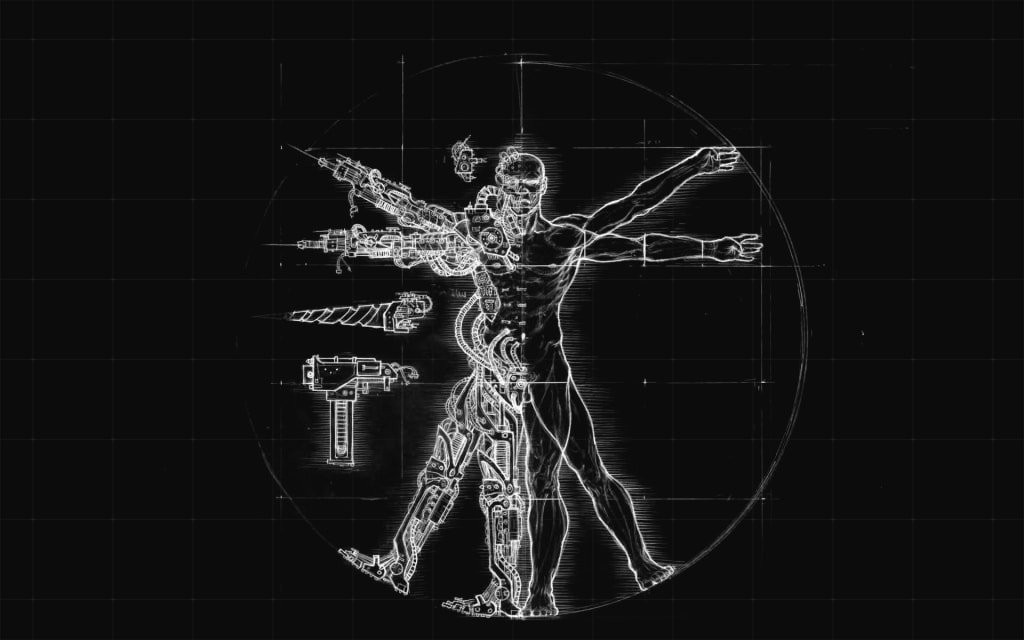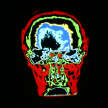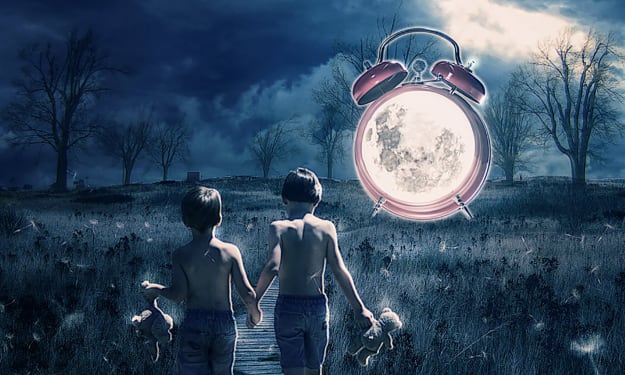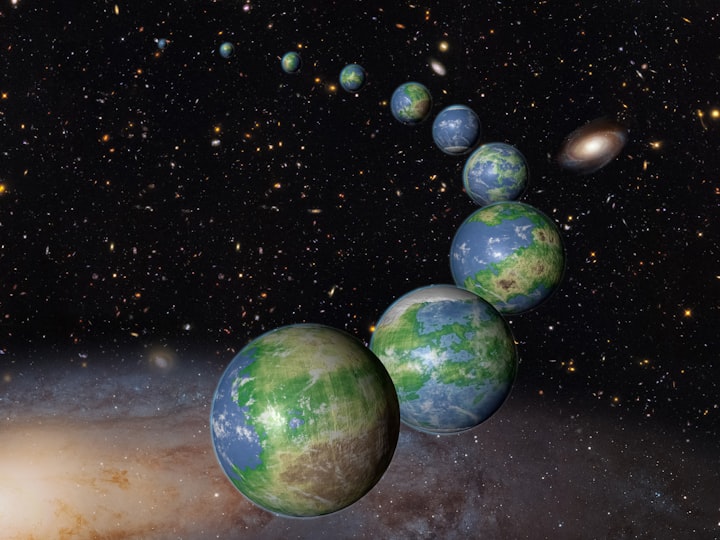Best Transhumanist Books
Explore the future of technology and the human race in the best transhumanist books.

Would you get a chip implanted in your skull that would allow you to surf the web in your mind? Would you cryogenically freeze yourself to heal life-threatening wounds? These are examples of transhumanism, or the transformation of the human condition by incorporating technology with the goal of improving humankind and perhaps providing the answer to death. The closest we have gotten to transhumanism today is the world’s most extensive face transplant which took place on November 16th, 2015. A forty-one-year-old firefighter from Mississippi was severely burned, but received a face transplant from a 26-year-old man who recently died in an extreme cycling accident. The 26-hour surgery was performed by a 150-person medical team from New York University Langone Medical Center. Not as extensive as the half-human half-robots in the best transhumanist books, but impressive by current technological standards.
Transhumanism has been present in sci-fi books for decades. Some of the greatest transhumanist books and films explore the dark vs the light of transhumanism, but there can be some progress made with such a feat. Authors like Arthur C. Clarke, Greg Egan, Linda Nagata, and many others have written transhumanist books to speculate on the future of a society that can combine humanity and technology.
In the near future, enormous silver spaceships appear without warning over mankind's largest cities. According to Childhood's End, they belong to the Overlords, an alien race far superior to humanity in technological development. Their purpose is to dominate the Earth. Their demands, however, are surprisingly beneficial—end war, poverty, and cruelty. Their presence, rather than signaling the end of humanity, ushers in a golden age—or so it seems. But it comes at a price. Originally published in 1953, Childhood's End is one of the best books by Arthur C. Clarke, his first successful novel, and it is considered a classic of science fiction literature, as well as one of the best transhumanist books. In 2004, the book was nominated for the Retro Hugo Award for Best Novel.
In Accelerando, artificial intelligence has surpassed the limits of human intellect. Biotechnological beings have rendered people all but extinct. Molecular nanotechnology runs rampant, replicating and reprogramming at will. Contact with extraterrestrial life grows more imminent with each new day. Something is systematically dismantling the nine planets of the solar system. Something beyond human comprehension. Accelerando won the Locus Award in 2006 and was nominated for several other awards in 2005 and 2006, including the Hugo, Campbell, Clarke, and British Science Fiction Association Awards. Even the individual short stories in this book were great reads and have been nominated for several awards.
What would you do if you could make copies of yourself? In Permutation City, Paul Durham makes software simulations of his own brain and body which can be run in virtual reality, albeit 17 times more slowly than real time. He wants them to be his guinea pigs for a set of experiments about the nature of artificial intelligence, time, and causality, but they keep shutting themselves down. He contacts a woman obsessed with Autoverse, a virtual world that follows a simple set of mathematical rules as its “laws of physics.” Together they try to design a seed for an entire virtual biosphere able to exist inside the Autoverse—a feat far beyond the capacity of all the computers in the world.
Diaspora’s setting is a posthuman future, in which transhumanism long ago (during the mid 21st century) became the default philosophy embraced by the vast majority of human cultures. Author Greg Egan invents several new theories of physics, beginning with Kozuch Theory, the dominant physics paradigm for nearly 900 years before the beginning of the novel. Kozuch Theory treats elementary particles as semi-point-like wormholes, whose properties can be explained entirely in terms of their geometries in six dimensions. Most of the characters choose a neutral gender; Keri Hulme's gender-neutral pronouns "ve," "vis," and "ver" are used for them.
The nanotechnology revolution begins with an act of love. In Tech-Heaven, Katie is a young mother with a successful career and a loving marriage, when her perfect life is shattered by the sudden death of her husband, Tom. Katie has Tom’s body placed in cryonic suspension. His death and his costly entombment spark immediate political controversy. It’s a debate that only grows more passionate as the years pass. Ultimately, Tech-Heaven is a compelling story of devotion and unyielding determination set amid the tumultuous politics of our time, in a world that is teetering on the cusp of a technological revolution like no other in history.
What will happen when humans transcend biology? For over three decades, Ray Kurzweil has been one of the most respected and provocative advocates of the role of technology in our future. In his classic The Age of Spiritual Machines, which is also one of the best transhumanist books, he argues that computers would soon rival the full range of human intelligence at its best. Now he examines the next step in this inexorable evolutionary process: the union of human and machine, in which the knowledge and skills embedded in our brains will be combined with the vastly greater capacity, speed, and knowledge-sharing ability of our creations.
No image better captures our deepest fears about technology than the cyborg. However, author Andy Clark believes humans are cyborgs. In Natural-Born Cyborgs, Clark argues that what makes humans so different from other species is our capacity to fully incorporate tools and supporting cultural practices into our existence. Technology as simple as writing on a sketchpad, as familiar as Google or a cellular phone, and as potentially revolutionary as mind-extending neural implants—all exploit our brains astonishingly plastic nature. A stunning new look at the human brain and the human self, Natural-Born Cyborgs reveals how our technology is indeed inseparable from who we are and how we think.
When we reach the end of science, we’ll reach the end of history. In Our Posthuman Future, author Francis Fukuyama explores the possible consequences of the biotechnology revolution. Fukuyama underlines man's changing understanding of human nature through history: from Plato and Aristotle's belief that man had "natural ends," to the ideals of utopians and dictators of the modern age who sought to remake mankind for ideological ends. Fukuyama persuasively argues that the ultimate prize of the biotechnology revolution—intervention in the "germ-line," the ability to manipulate the DNA of all of one person's descendants—will have profound, and potentially terrible, consequences for our political order, even if undertaken by ordinary parents seeking to an improve" their children.
We are at an inflection point in history. According to author Joel Garreau and Radical Evolution, we are engineering the next stage of human evolution. Through advances in genetic, robotic, information, and nanotechnologies, we are altering our minds, our memories, our metabolisms, our personalities, our progeny—and perhaps our very souls. With the help and insights of the gifted thinkers and scientists who are making what has previously been thought of as science fiction a reality, Garreau explores how these developments, in our lifetime, will affect everything from the way we date to the way we work, from how we think and act to how we fall in love.
In 2020, computers will exceed human intelligence. Author Ray Kurzweil's prophetic blueprint for the future in The Age of Spiritual Machines takes us through the advances that inexorably result in computers exceeding the memory capacity and computational ability of the human brain. We will have relationships with automated personalities who will be our teachers, companions, and lovers. We may even have information fed straight into our brains along direct neural pathways. Optimistic and challenging, thought-provoking and engaging, The Age of Spiritual Machines is one of the best transhumanist books because it provides an ultimate guide on our road into the next century.
About the Creator
Futurism Staff
A team of space cadets making the most out of their time trapped on Earth. Help.






Comments
There are no comments for this story
Be the first to respond and start the conversation.